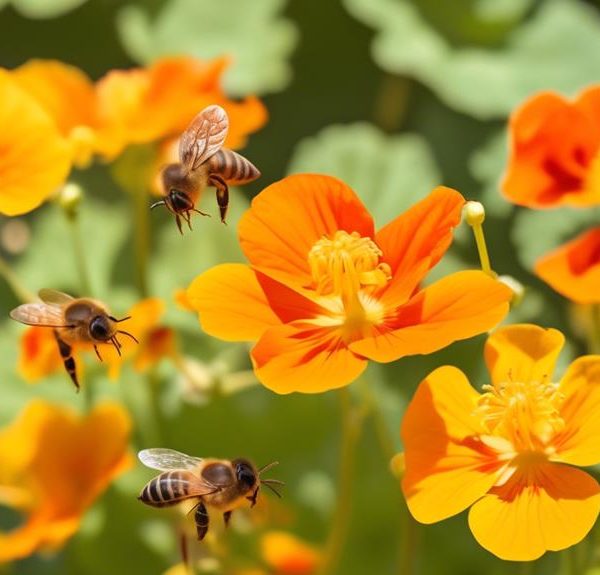Journey into the fascinating world of Russian honey bees and unravel the truth about their alleged aggressive nature.

Are Russian Honey Bees Aggressive
You've probably heard the buzz about Russian honey bees and their supposed temperamental nature. In the world of apiary, it's important to understand the personality traits of different species, as you're not exactly dealing with kittens and puppies.
Russian honey bees, in particular, have gained quite a reputation, but are they truly as aggressive as many claim? Or could there be other factors at play, influencing their behavior and our perception of it?
Let's explore this further, keeping in mind that the truth might be more nuanced than you expect.
Key Takeaways
- Russian honey bees exhibit exceptional resistance to Varroa mites and are well adapted to harsh climates.
- They have a reduced tendency to swarm and are less susceptible to brood diseases compared to other bee species.
- Russian honey bees are generally less aggressive, but their defensive behavior can be triggered by abrupt changes or frequent disturbances.
- Understanding the unique biological characteristics of Russian honey bees is crucial for managing their behavior and coexisting effectively.
Understanding Russian Honey Bees

To truly comprehend the nature of Russian honey bees, you need to delve into their unique biological characteristics and behavior patterns.
First off, you should understand that these bees are known for their exceptional resistance to parasites, specifically the Varroa mite. This resistance is due to the evolved grooming behavior which enables them to remove these harmful parasites from their bodies.
Apart from this, they're also renowned for their impressive adaptability to harsh climates. Russian bees can survive in extremely cold temperatures, a trait that they've inherited from their origins in the Primorsky region, a place known for brutal winters. This adaptability is crucial as it allows them to maintain their honey production even during cold seasons.
Their behavior is also distinct. Russian bees show a reduced tendency to swarm and they're less prone to brood diseases. They're also efficient foragers, enabling them to gather food resources effectively. Furthermore, they possess a unique trait of delayed brooding, which means they start their honey production later in the spring than other bee species. This characteristic helps them conserve resources during the winter months, providing them with a survival advantage. Understanding these aspects can help you appreciate why Russian honey bees are considered a robust and resilient species.
Aggression Level in Bees
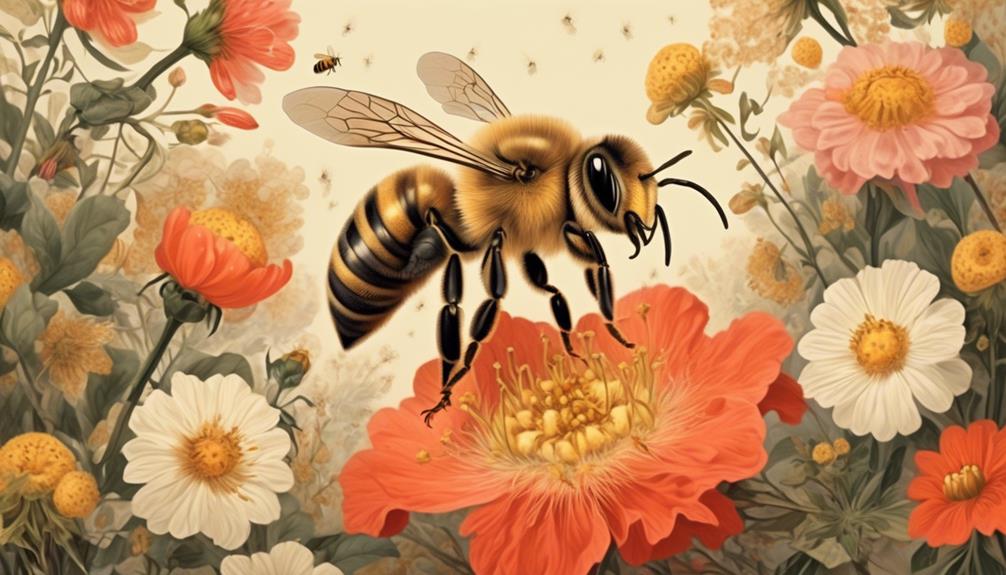
When assessing the aggression level in bees, it's crucial to note that factors such as species, environmental conditions, and colony disturbances can significantly influence their defensive behaviors. For instance, the Russian honey bee, a subspecies renowned for its resilience and productivity, tends to exhibit less aggression compared to other honey bees under similar conditions.
You must remember that the environment plays a pivotal role in bee aggression. Any abrupt change, like a sudden temperature shift or an unexpected disturbance near the hive, can trigger defensive behavior in bees. It's their instinctual response to protect their colony.
Moreover, a bee's aggression can be exacerbated by frequent colony disturbances. Invasive inspections or frequent hive relocations can induce stress, leading to heightened aggression. So, you need to handle the colonies with care to avoid triggering aggressive responses.
In the context of Russian honey bees, these bees are known to exhibit lower aggression levels generally. However, they're not entirely docile. If you pose a threat to their colony, they won't hesitate to defend it. Hence, the key to managing bee aggression lies in understanding their behavior and maintaining a conducive environment for their survival.
Factors Influencing Bee Aggression
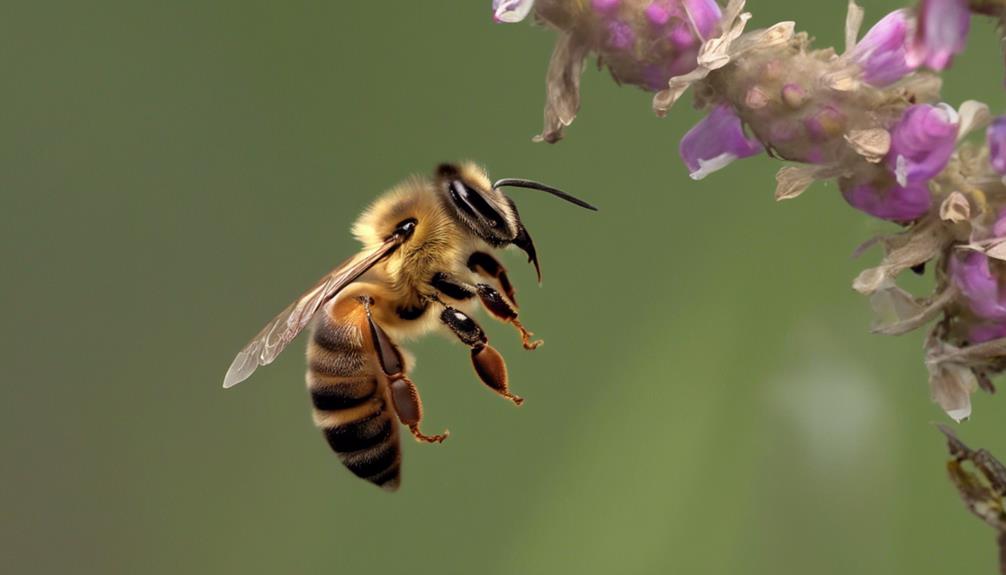
Understanding the factors that influence bee aggression can help you better manage and coexist with these industrious insects. There are several key influences that can trigger aggressive behavior.
The first is genetics. The species of the bee plays a crucial role in its aggression level. For instance, Russian honey bees are generally less aggressive than their Africanized counterparts. However, within a species, individual genetic variations can also cause differences in aggression.
Environmental stressors are another prominent factor. A lack of food or water, exposure to pesticides, or disturbances to the hive can all lead to increased aggression. You'll notice that bees are more defensive during periods of food scarcity or when their hive is threatened.
Lastly, the queen's pheromones can significantly impact the colony's aggression. When the queen is healthy and producing regular pheromones, the colony is usually more docile. But if the queen is sick or absent, the colony may become agitated and aggressive.
Comparing Russian Honey Bees
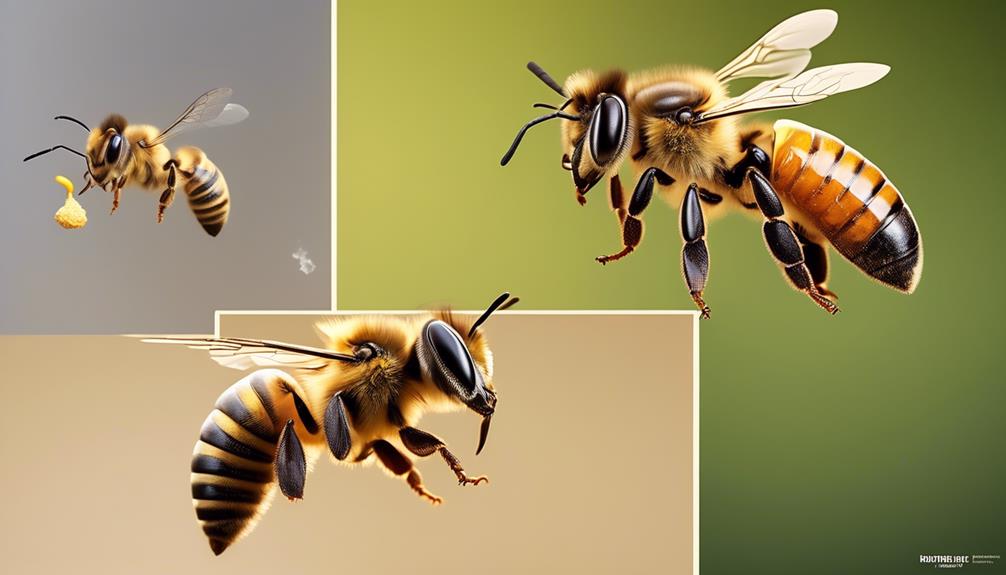
Delving deeper, you'll find that Russian honey bees, while less aggressive than some species, exhibit unique behaviors and traits that set them apart. These bees have an innate ability to resist various parasitic mites, a common threat to other honey bee populations. They possess superior wintering ability, often surviving colder climates where other species may not. Moreover, Russian honey bees are efficient pollinators and honey producers, contributing significantly to agricultural productivity.
Comparatively, Italian honey bees, another popular beekeeping choice, don't exhibit the same level of mite resistance. They're often susceptible to diseases and require heavier management to keep mite populations under control. However, they're more docile and produce honey abundantly, which makes them desirable for commercial beekeeping.
In terms of temperament, Russian honey bees aren't necessarily more aggressive, but they're more defensive. They tend to respond quickly and in large numbers when their hive is threatened. This trait, while intimidating, is actually a survival mechanism that has helped ensure their longevity against predators.
Each bee species has its strengths and weaknesses, and the choice between them should be based on your specific needs and circumstances. Understanding these differences will help you make an informed decision.
Managing Aggressive Bee Behavior
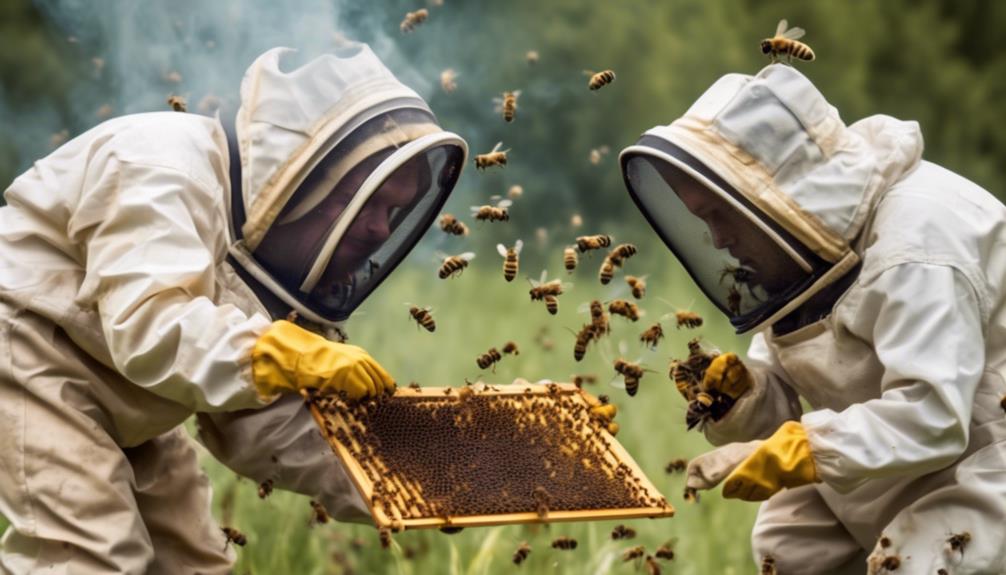
Beekeeper's success often hinges on effectively managing aggressive bee behavior, which can be particularly challenging with Russian honey bees due to their defensive nature. This breed, more than others, will defend their colony fiercely, often resulting in a higher number of bee stings. As a beekeeper, it's crucial to understand this behavior and adopt appropriate management techniques.
First, always wear protective clothing, including gloves, a veil, and a beekeeper's suit. This will provide a physical barrier between you and the defensive bees. It's also essential to use a smoker, as the smoke can disorient the bees, making them less aggressive.
Next, consider the placement of your hives. Position them in less-trafficked areas to avoid provoking the bees unnecessarily. Moreover, regular, gentle hive inspections can help you monitor the colony's mood and identify any potential issues early on.
Conclusion
So, are Russian honey bees aggressive? Well, it's not that simple. Their aggression level varies, influenced by factors like environment and genetics.
Compared to other species, they can be more defensive, but this doesn't always mean aggressive. Managing their behavior relies on understanding these nuances.
As a beekeeper, it's crucial to respect and interpret their signals, ensuring a harmonious cohabitation. So, don't fear Russian honey bees, rather, strive to understand them better.

